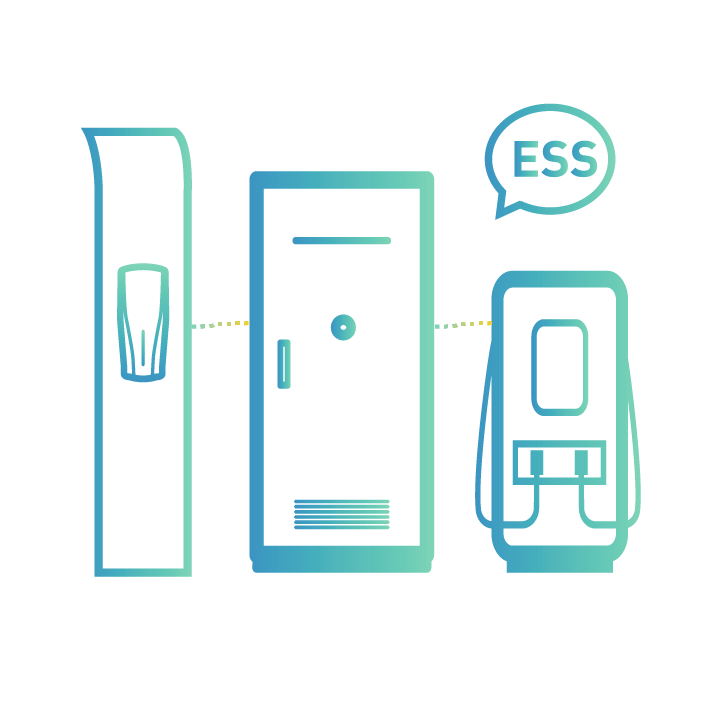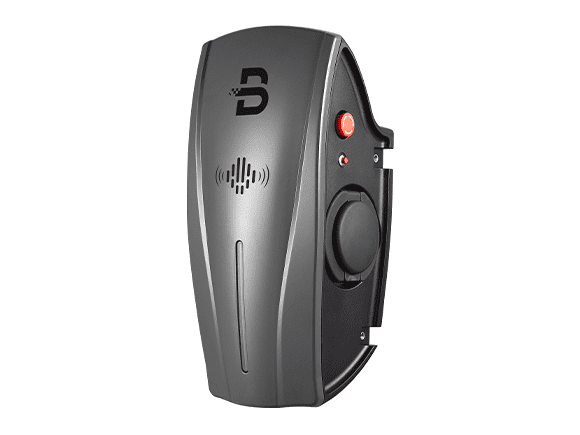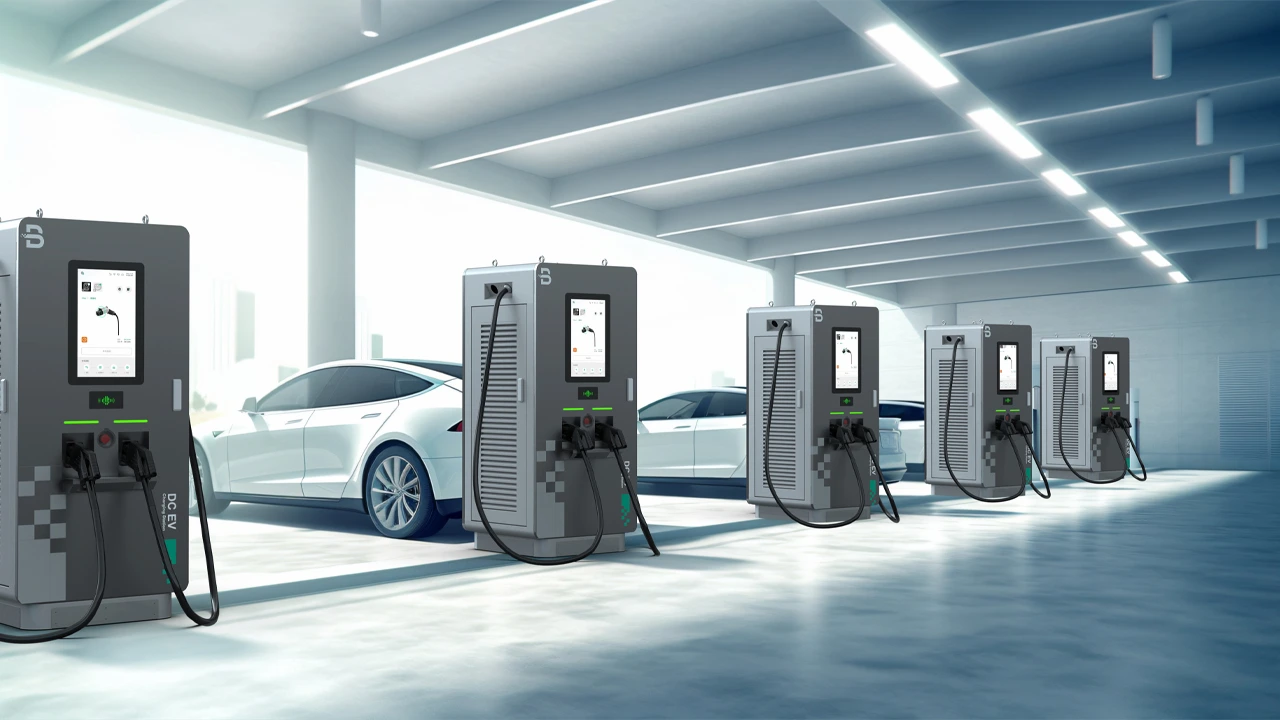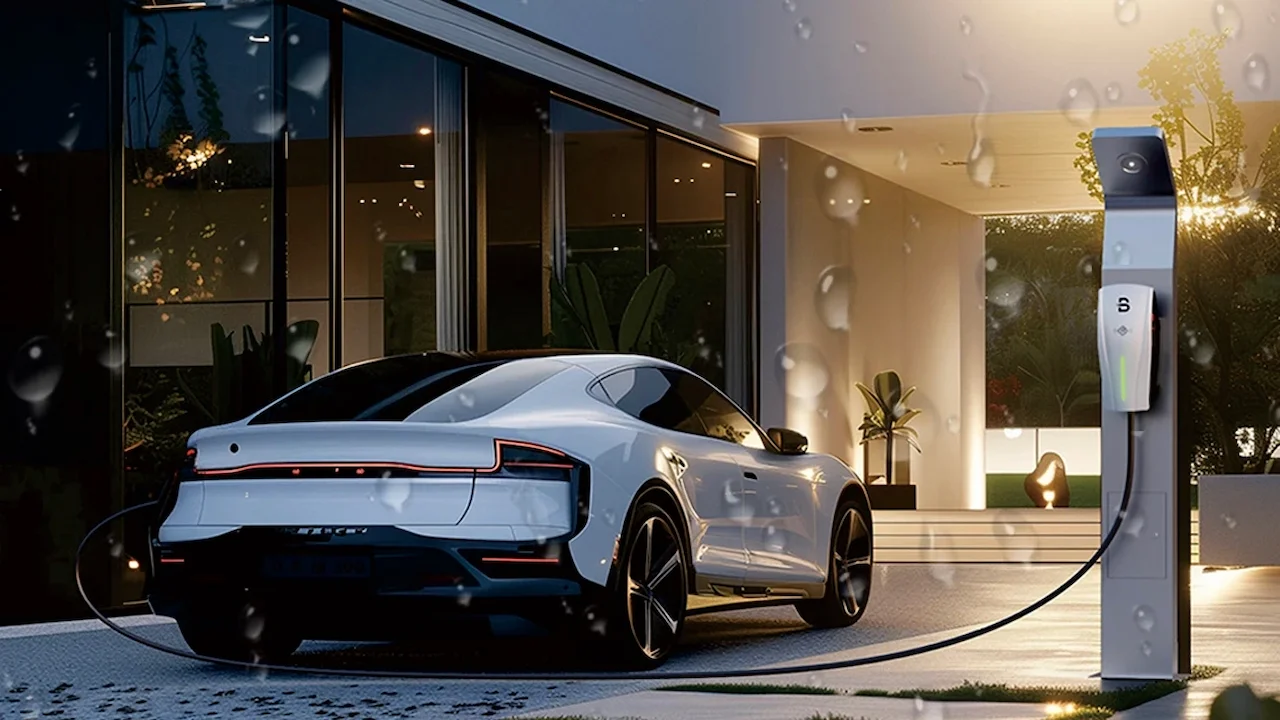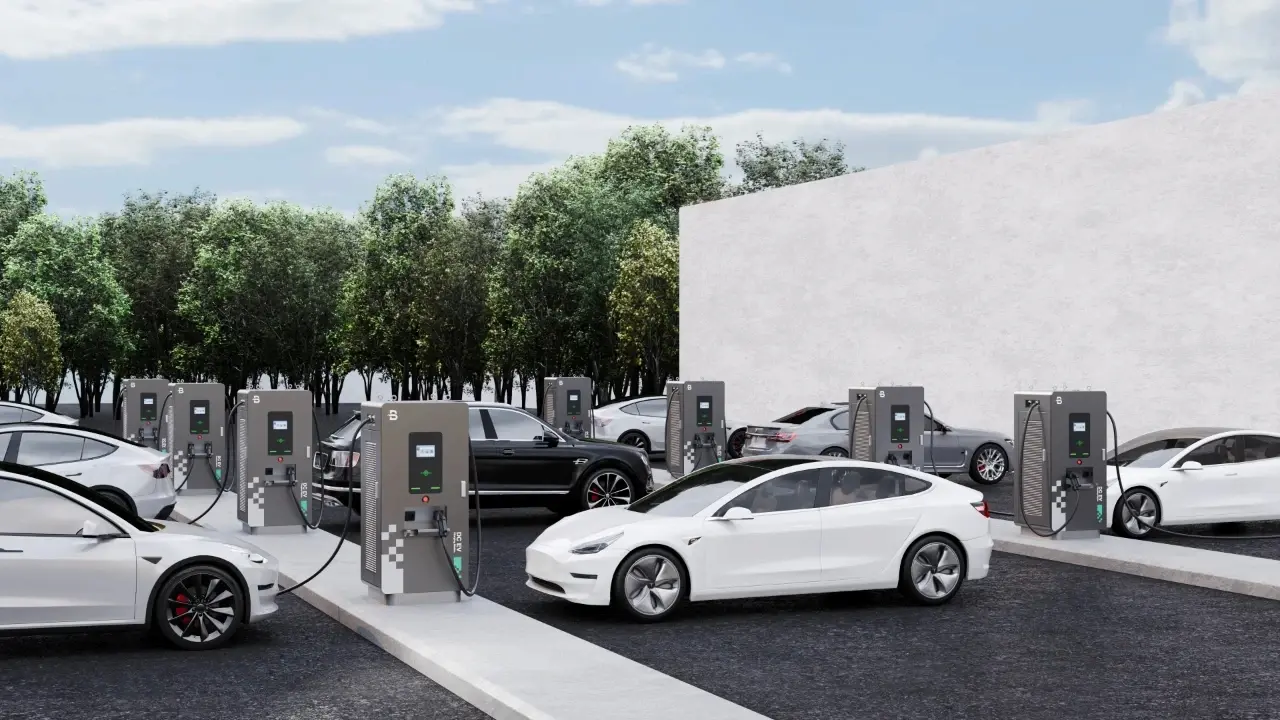The Combined Charging System (CCS) is currently the widely adopted fast-charging standard in the global electric vehicle sector, enabling efficient energy replenishment by integrating AC charging and DC charging capabilities.
It is divided into two types of charging interfaces, CCS1 and CCS2, which differ in voltage and current. What are their differences? Which one is more suitable for you? This article will discuss CCS1 vs CCS2 in detail.
- What are CCS1 and CCS2?
- CCS1 vs CCS2: What are the Differences?
- How to Choose Between CCS1 and CCS2?
- EVB Charger Support Charging Stations with Different Standards
What are CCS1 and CCS2?
CCS is called “Combined Charging” because it directly adds two DC contacts to the existing Type 2 charger. It enables CCS EV chargers to support both AC charging and high-power DC charging, providing users with multiple options. Among them:
- CCS1 (Combo 1): Primarily used in markets such as North America and South Korea. It is based on an extension of the SAE J1772 (Type 1) AC connector, with the addition of two DC contacts.
- CCS2 (Combo 2): Mainly adopted in Europe, Australia, New Zealand, and the Asia-Pacific region. It extends the IEC 62196 (Type 2) AC connector by adding two DC fast-charging contacts. It supports both single-phase and three-phase charging, offering greater flexibility.
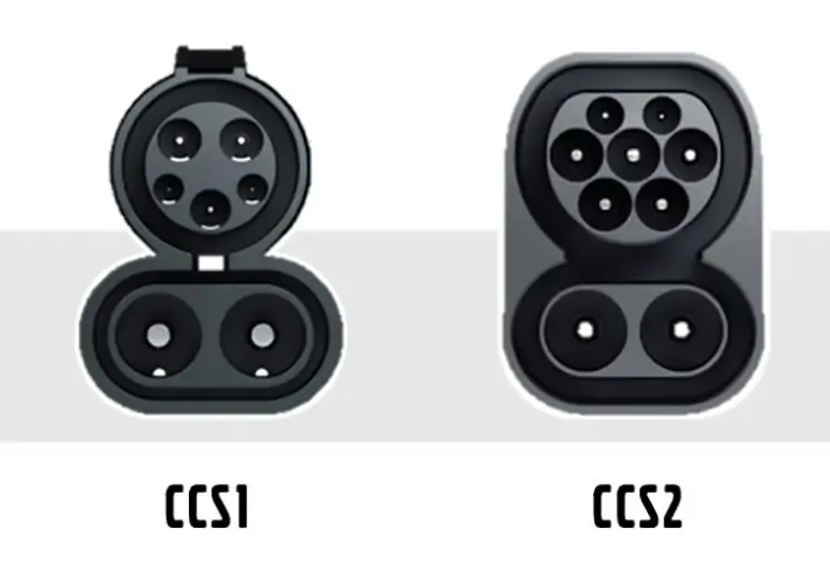
CCS1 vs CCS2: What are the Differences?
1. Connector Comparison
- CCS1 is based on the SAE J1772 connector, containing 5 pins for AC charging plus an additional two-pin DC fast charging connector.
- CCS2 is based on the Type 2 IEC 62196 connector, containing 7 pins, along with an additional two-pin DC connector.
- The CCS1 connector is larger in size compared to the CCS2.
2. Charging Performance
- For AC charging, CCS1 supports single-phase AC charging with a maximum power of 19.2kW. CCS2 supports both single-phase and three-phase AC charging, with a maximum of 22kW for single-phase and 43kW for three-phase.
- For DC fast charging, both CCS1 and CCS2 charging speeds support 50-350kW DC fast charging, with nearly identical performance in this regard.
- Plus, CCS1 vs CCS2 supports similar voltage ranges. However, CCS1 supports a maximum current of 200 amps, while CCS2 can handle up to 350 amps.
3. Compatibility
- CCS1 and CCS2 are compatible with their respective AC connectors. The two standards are not interchangeable—meaning you cannot use a CCS1 connector to charge your vehicle at a CCS2 charging station.
- Some manufacturers offer CCS1-CCS2 adapters, though high-power fast charging capabilities may be limited. Certain EV manufacturers and charging station producers are also exploring solutions to integrate both connector types, aiming to provide users with broader compatibility options.
4. Supported Vehicle Models
- Type 1 CCS is commonly found in electric vehicles from North America and South Korea, such as the Chevrolet Bolt, Ford Mustang Mach-E, BMW i3, and Hyundai Kona.
- CCS2 is widely used in electric vehicles across Europe and parts of Asia, including models like the Audi e-tron, Mercedes-Benz EQC, and Renault Zoe.
5. Market Adoption
- Currently, the CCS1 charger remains the mainstream standard in North America, South Korea, and some parts of the Japanese market, with its infrastructure developing rapidly. CCS2 charger has become the dominant charging standard in Europe and is mandatorily used in EU countries. In addition, Australia, South Africa, and some Asian countries also use the CCS2 connector.
- As more and more automakers around the world adopt CCS charger technology, it is expected to become the global standard for DC fast charging.
How to Choose Between CCS1 and CCS2?
For EV charging investors, choosing between CCS Combo 1 vs 2 charging stations primarily depends on the target market’s charging standards and development trends.
- If investing in the North American market, the CCS1 charger is currently the mainstream choice, but attention should be paid to potential market shifts due to Tesla’s NACS standard.
- For markets like Europe and Australia, the CCS2 charger is the inevitable option, as it supports higher-power three-phase AC charging and is mandated by the EU.
- In the long term, it’s more important to assess policies and technological developments.
For EV users, the choice depends on vehicle compatibility and location of residence:
- Buyers in North America should ensure their vehicles support CCS1.
- European users should opt for CCS2 models to access the widest charging network coverage.
- For those frequently traveling across regions, note that CCS type 1 vs type 2 are not interchangeable. Carrying an adapter may be necessary to ensure charging convenience.
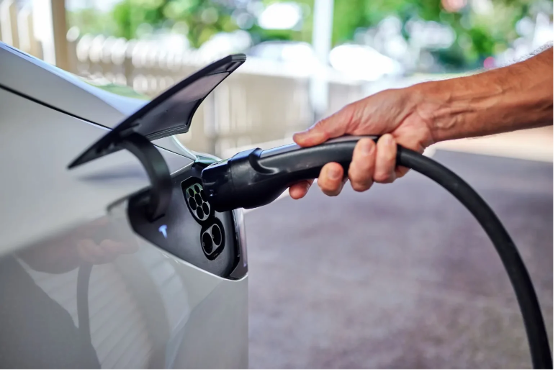
EVB Charger Support Charging Stations with Different Standards
Now that you understand the differences between CCS1 vs CCS2, making the right choice is straightforward. Whether you’re in North America, Europe, or elsewhere, EVB Charger offers charging solutions that comply with local standards. We provide charging stations with various connector types, including CCS1, CCS2, GB/T, and CHAdeMO, covering AC, DC, and portable options.
Our charging stations support high-power fast charging, with DC charging power ranging from 20kW to 600kW and AC charging power from 3.7kW to 22kW. They also feature smart management systems to optimize charging efficiency, making them suitable for home, commercial, and public charging networks.
Investors can choose the mainstream local standard, while multinational businesses or fleet operators can opt for customized multi-protocol solutions. Contact us, and we’ll recommend the best option for your needs.

